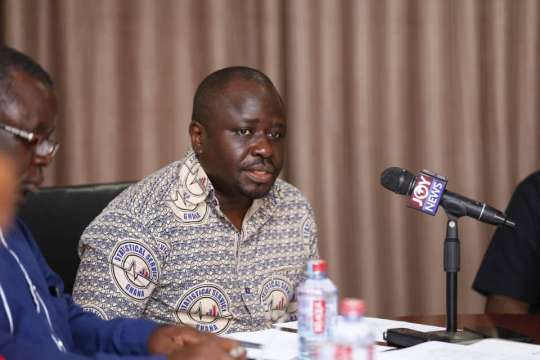Ghana Inflation falls to unexpected record low
- Advertisement -
Ghana’s inflation rate dropped its lowest level since the start of 2013, at 7.5 percent in May, which is less than the median of the Bank of Ghana’s target band of between 6 percent and 10 percent.
The fall in headline consumer price inflation from April’s level of 8.5 percent was announced by Government Statistician Samuel Kobina Annim on Wednesday in Accra,. That’s the lowest rate since at least the start of 2013 and was lower than generally expected. Prices climbed 0.8 percent in the month.
- Advertisement -
The central bank’s monetary policy committee said last week predicted that the rate will be close to 8 percent by June.
- Advertisement -
At the same briefing last week, Governor Ernest Addison announced the committee’s unexpected move to cut its benchmark interest rate to 13.5 percent the lowest in more than nine years to support the recovery of the economy, even as cost pressures from new taxes and a 13% rise in transport fares are yet to reflect in price data. Indeed, at the time the rate cut was announced last week many economists criticized it accusing the BoG of having moved too soon and underestimated the impending inflationary pressures
However, the latest inflation data now supports the key interest rate cut, more so as the much awaited increase in commercial transport fares, announced last week was just 13 percent, well below the widely anticipated 20 percent. Indeed, economists now suspect te BoG had been given advance notice of both the agreed increase in transport fares (which was announced the very next day after the interest rate cut was announced) and the sharper than expected fall in consumer inflation for May, and had factored both into its calculations.
- Advertisement -
Read More: Lending rates begin to fall as BoG cuts key interest rate to support economic rebound
Although inflation os expected to rise this month as the effects of both transport fare increases and the introduction of new taxes and levies take hold, it is unlikely that it can rise to more than the 10 percent ceiling of the BoG’s target band.
The inflation rate in the West African economy was above 11% in May, June and July last year at the peak of the pandemic and movement restrictions, creating a high base for comparing year-on-year price moves. That, and a relatively stable exchange rate, added to the drop in the headline number last month.
A “drop in the rate of inflation may make the Bank of Ghana feel vindicated in cutting the policy rate,” Courage Martey, an economist with Accra-based Databank Group, said by phone ahead of the release. “If subsequently the rate goes up, then we expect to see the policy rate on hold for the rest of the year.”
Food-price growth, that helped to keep inflation above 10% for most of last year, slowed to 5.4 % from 6.5% in April. Non-food inflation was 9.2%. The unusual fall in food inflation mid way between the annual harvest now suggests that the relatively high food inflation during the latter part of last year was simply the result of COVID-19 instigated price distortions which are now being belatedly distorted.
- Advertisement -


